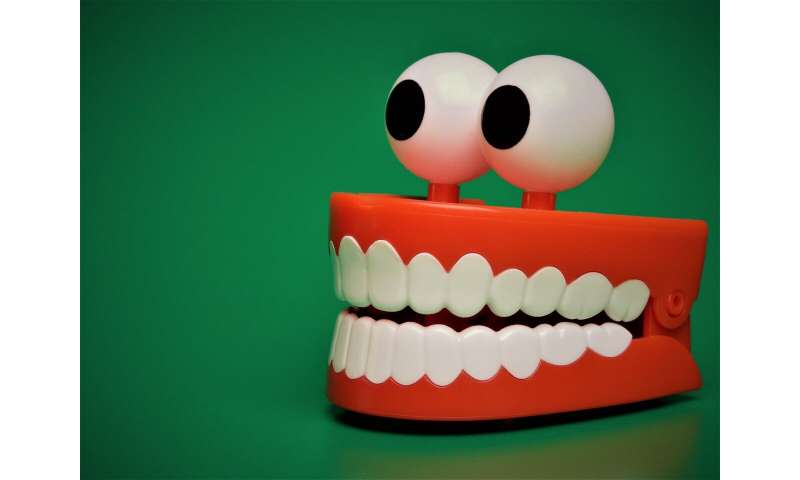
New knowledge on the cellular makeup and growth of teeth can expedite developments in the treatment of tooth sensitivity and regenerative dentistry—a biological therapy for damaged teeth. The study, which was conducted by researchers at Karolinska Institutet, is published in Nature Communications.
Teeth develop through a complex process in which soft tissue, including connective tissue, nerves and blood vessels, is bonded with three types of hard tissue into a functional body part. As an explanatory model for this process, scientists often use the mouse incisor, which grows continuously and is renewed throughout the animal’s life.
Despite the fact that the mouse incisor has often been studied in a developmental context, many fundamental questions about the tooth cells, stem cells and their differentiation and cellular dynamics remain to be answered.
Using a single-cell RNA sequencing method and genetic tracing, researchers at Karolinska Institutet, the Medical University of Vienna in Austria and Harvard University in the U.S. have now identified and characterized all cell populations in mouse teeth and in the young growing and adult human teeth.
“From stem cells to the completely differentiated adult cells, we were able to decipher the differentiation pathways of odontoblasts, which give rise to dentine—the hard tissue closest to the pulp—and ameloblasts, which give rise to the enamel,” say the study’s last author Igor Adameyko at the Department of Physiology and Pharmacology, Karolinska Institutet, and co-author Kaj Fried at the Department of Neuroscience, Karolinska Institutet. “We also discovered new cell types and cell layers in teeth that can have a part to play in tooth sensitivity.”
Some of the finds can also explain certain complicated aspects of the immune system in teeth, and others shed new light on the formation of tooth enamel, the hardest tissue in our bodies.
“We hope and believe that our work can form the basis of new approaches to tomorrow’s dentistry. Specifically, it can expedite the fast expanding field of regenerative dentistry, a biological therapy for replacing damaged or lost tissue.”
Source: Read Full Article